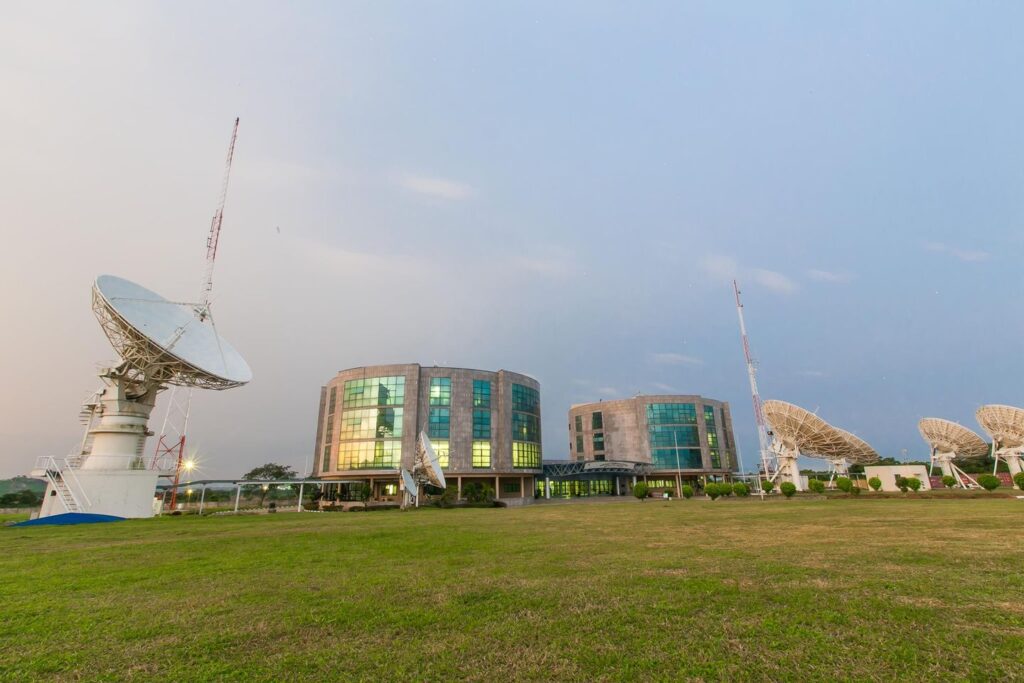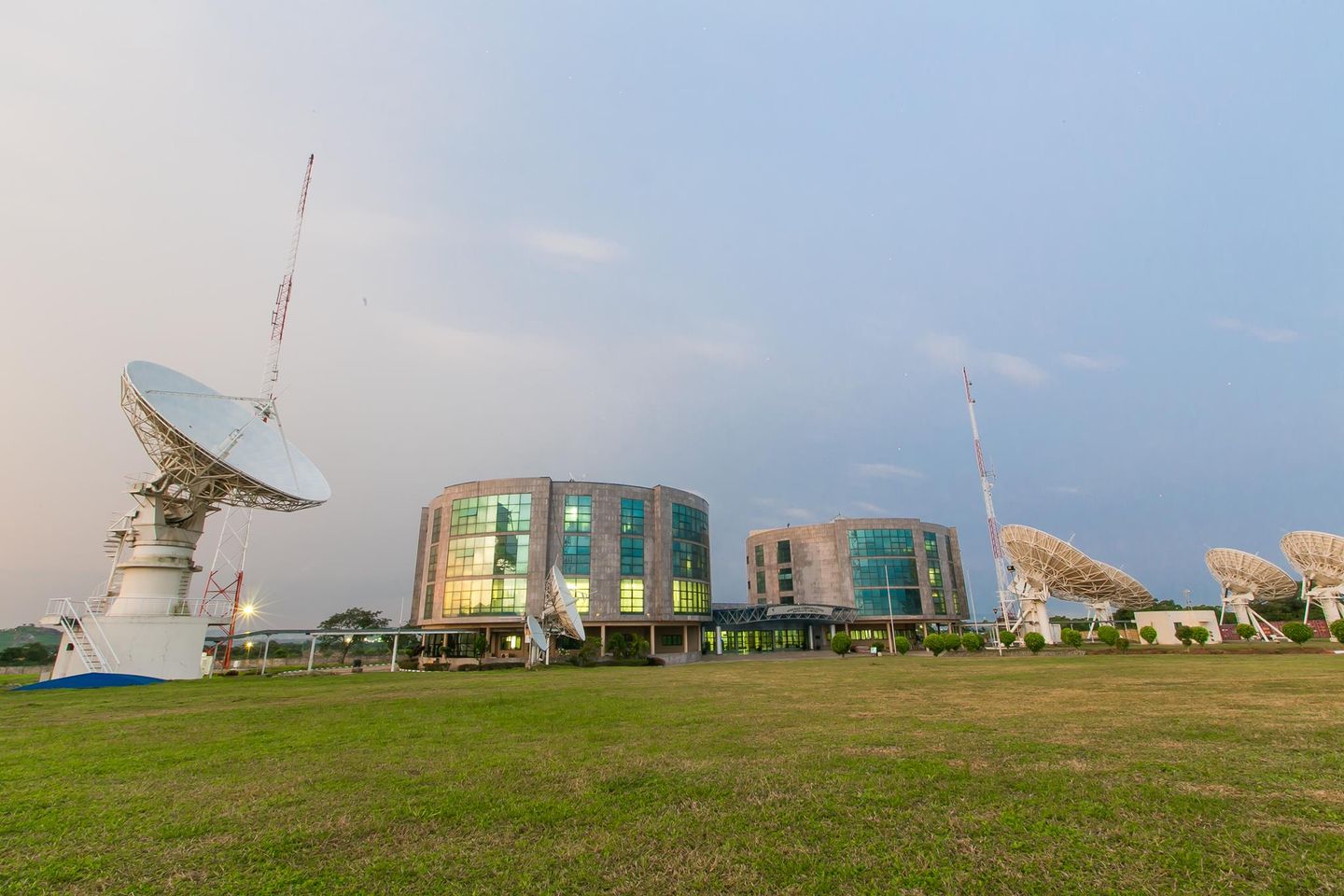69
Joy Agwunobi
The Nigerian Communications Satellite Ltd. (NIGCOMSAT) has unveiled an ambitious plan to generate N8 billion in revenue within the next three years, leveraging satellite technology to expand broadband penetration across Nigeria and close the country’s persistent digital divide.
Jane Egerton-Idehen, managing director of NIGCOMSAT, announced the target during a stakeholder roundtable in Lagos, where she underscored the central role of broadband in powering modern economies. According to her, satellite connectivity offers Nigeria an opportunity to extend digital services to areas where traditional terrestrial infrastructure cannot reach.
“We know broadband has greater value and wider use cases, from connecting local government offices to supporting education, defence, healthcare and even fintech. The challenge is that we cannot do it alone,” she said.

Satellite at the centre of Nigeria’s digital inclusion
In a televised interview, Egerton-Idehen further explained that NIGCOMSAT is positioning satellite connectivity as a core enabler of Nigeria’s broadband strategy, particularly in underserved and rural areas.
She noted that while Nigeria has made progress, broadband penetration remains slightly below 50 percent for a nation of over 230 million people. “During COVID-19, we saw the urgent importance of bridging the digital divide. Entire communities were cut off from essential services. Satellite connectivity is one of the viable solutions to close that gap, especially in rural and hard-to-reach areas,” she added.
One of NIGCOMSAT’s flagship initiatives is Project 774, designed in partnership with the Federal Ministry of Communications, Innovation and Digital Economy, to deliver broadband access to all 774 local government secretariats across the country. So far, 45 secretariats across eight states have been connected. Egerton-Idehen noted that satellite technology is particularly useful in rural communities where laying fiber optic cables is either financially unviable or logistically difficult.
According to her, satellite connectivity becomes especially critical in remote villages and difficult terrains where laying fiber is either economically unviable or technically complex. “Think of a village of just 50 people. Extending fiber all the way from the urban areas to that village might not be viable for the private sector or for the mobile operators, but with satellite connectivity, we can localise that connectivity and provide that solution for that village,” Egerton-Idehen explained.
She pointed out that satellites have unique advantages in complex terrains and mobile environments, supporting connectivity on ships, planes, moving vehicles, and remote settlements.
Beyond local governments, NIGCOMSAT is extending services to sectors like agriculture and healthcare. Large farms in remote areas, she said, require connectivity to deploy Internet of Things (IoT) devices for precision agriculture, while rural health centres can benefit from e-health and telemedicine solutions once reliable access is available.
Egerton-Idehen further underscored Nigeria’s pioneering role in Africa’s satellite industry. “Nigeria has already demonstrated leadership in the satellite space,” she said, recalling that the country launched its first communications satellite in 2006 and remains the only West African nation with such an asset. “We have demystified satellite operations, running our assets for over 14 years to provide broadband, broadcast, and specialised communications services. What is crucial now is using it to deliver on the national broadband penetration target, particularly in rural areas.”
Egerton-Idehen highlighted the importance of a layered approach to connectivity, combining satellite, fiber, and mobile networks. She noted that while Nigeria is investing heavily in terrestrial fiber infrastructure—such as the government’s Project Bridge, announced by Minister Bosun Tijani to lay over 90,000 kilometers of fiber optic cable—satellite remains indispensable for remote communities and specialized use cases.
“If we integrate mobile, fiber, and satellite solutions, we can fast-track digital access for all Nigerians. This will ensure that teachers in rural areas, students working remotely, traders in villages, and health centres in remote regions can all benefit from the same level of digital inclusion as those in urban centres,” she said.
On the investment outlook, Egerton-Idehen stressed that value creation is key to attracting private capital into Nigeria’s satellite ecosystem. She cited the global shift where private players now drive innovation and investment in satellite technology, once dominated by governments.
To this end, NIGCOMSAT has launched an accelerator programme to support Nigerian startups in the satellite space. The agency worked with 25 startups last year and is supporting 35 this year, connecting them to investors interested in practical satellite-enabled solutions for underserved communities.
Egerton-Idehen also addressed cybersecurity and data protection, noting that as technology evolves, regulation must keep pace. She commended Nigeria’s proactive steps, including the National Data Protection Act and ongoing efforts to develop an AI strategy and a digital economy bill. “Data sovereignty is critical. Using our own national assets ensures that sensitive communications, especially in defence, remain under Nigerian jurisdiction,” she stated.
She emphasised the importance of talent development, referencing the Federal Government’s 3MTT (3 Million Technical Talent) initiative and NIGCOMSAT’s investments in capacity building around VSAT and related technologies. “For technology to thrive, we must build not just infrastructure but also the human capital to sustain it,” she noted.
In a related development, NIGCOMSAT has deepened its collaboration with Nigeria’s defence sector. During a recent visit to Hassan Bala Abubakar, the chief of air staff, discussions centered on leveraging satellite capabilities for mission-critical functions such as secure communication, real-time intelligence, and surveillance.
“We are excited at the partnership not just with the Nigerian Air Force, but also with the defence sector as a whole. By deploying national satellite assets, we provide sovereignty, security, and sustainability in critical communications. This ensures that Nigeria is using its own infrastructure to solve its own security challenges,” Egerton-Idehen said, adding that NIGCOMSAT is also providing satellite communications to naval ships, including NNS Kano.
She concluded by reaffirming that Nigeria’s investments in satellite technology are beginning to yield value across multiple sectors, from government administration to defence, healthcare, and agriculture. “This is just the beginning,” she said. “With partnerships and layered connectivity solutions, Nigeria can leapfrog into a future where digital access is inclusive, secure, and sustainable.”
